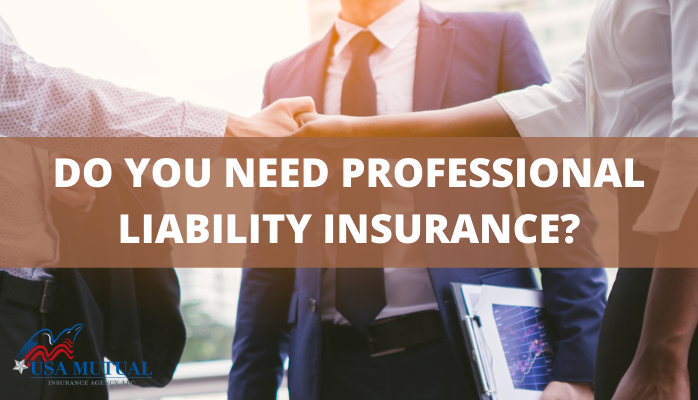|
Professional liability insurance is a must-have for many businesses, especially if you provide a service.Every small business faces risks. But if you earn your living offering a service, dissatisfied clients can also cost you. Any business that sells its expertise should consider professional liability insurance.
Also known as errors and omissions (E&O) insurance, this coverage protects your company and your bottom line from customer claims of late, incomplete, or unsatisfactory work.Accusations like these can lead to costly lawsuits. As a small business owner, you must understand the unique risks you face and the insurance coverage you need to protect you. Let’s take a look at the difference between professional liability and other liability policies and which ones might make the most sense for your business. What is professional liability insurance? Successful business owners typically have happy clients. But what if an upset client decides to sue? That’s when you’ll need professional liability insurance.Professional liability insurance protects small businesses by covering the costs of client lawsuits claiming substandard work.A client may claim your negligence caused them financial harm. And a client that thinks you cost them money may take legal action in hopes of recovering their losses. Professional liability insurance can cover the costs of lawsuits over:
And even if you didn’t miss a deadline, E&O coverage can still protect you. After all, you don’t need to be at fault to be sued. Successfully defending yourself in court can be expensive. Professional liability insurance will cover those costs and help ensure your business stays afloat. If you already have a general liability insurance policy, you might wonder how it differs from professional liability insurance. In short, a general liability policy protects you from third-party claims like:
Is professional liability insurance required? Many small business owners may wonder, when is professional liability insurance required? You’re not alone. The short answer: It depends on your business. Some states require legal or medical malpractice insurance for lawyers, doctors, and certain medical professionals. Professional liability coverage isn’t required by law for other service-based jobs. That doesn’t mean it’s not important. Which businesses should consider carrying professional liability coverage? Any business that provides professional services should look into professional liability coverage. Some businesses that may need this coverage include:
Your clients may require a policy to be in place before they’ll agree to do business with you. They want to know that they’re protected if your company fails to deliver on promises or breaks the terms of your contract. If a client requires professional liability coverage, you’ll need to provide a certificate of insurance that serves as proof of coverage and outlines your policy limits. If you have employees, you may also need a fidelity bond to cover criminal acts by workers, such as fraud. Want to know more? Contact the insurance professionals at USA Mutual Insurance to help guide you in purchasing the best policy for your needs.
0 Comments
Special event insurance is an insurance policy that helps protect your investment in a specific event, such as a wedding. Event insurance may help cover your costs if you unexpectedly need to cancel your event or if you're found responsible for property damage or an injury caused during your event.
WHAT DOES SPECIAL EVENT INSURANCE COVER? You may be able to purchase two types of coverage to help protect your upcoming event — cancellation coverage and liability coverage. WHAT EVENTS DOES SPECIAL EVENT INSURANCE COVER? Eligible events are typically private and may include functions such as:
WHAT TYPES OF EVENTS ARE NOT COVERED BY SPECIAL EVENT INSURANCE? Public events, including dance recitals, sporting events and exhibitions, typically cannot be insured under this coverage, and neither can bachelor/bachelorette parties. Certain business functions, such as fundraisers or private corporate parties, may or may not be eligible. Your agent can tell you what specific events may qualify for coverage. WHEN SHOULD I BUY EVENT INSURANCE? Keep in mind that it's a good idea to purchase special event insurance as soon as you start making deposits or purchases for your event. There may also be restrictions on when you can purchase coverage — often no later than two weeks before your event but no sooner than two years prior. Want to know more? Contact the team at USA Mutual Insurance to get more details on our Special Events Insurance Policies. |
Archives
February 2022
Categories |
USA Mutual Insurance Agency, LLC | 4830 Arthur Kill Road, LL1 Staten Island, NY 10309 | (718) 285-6500 | [email protected]



 RSS Feed
RSS Feed